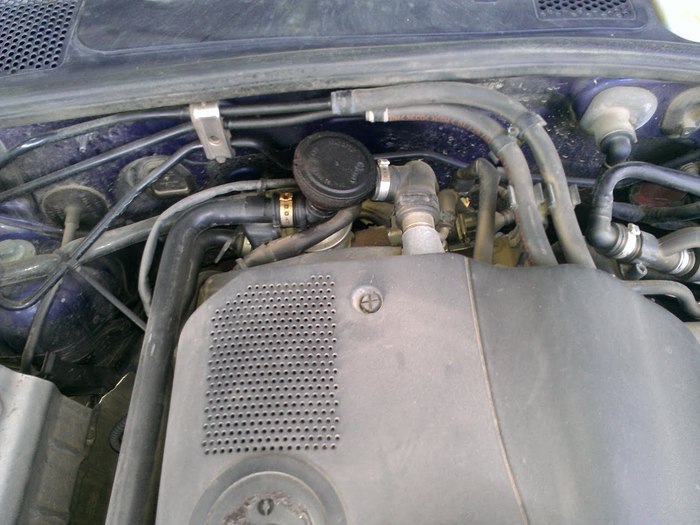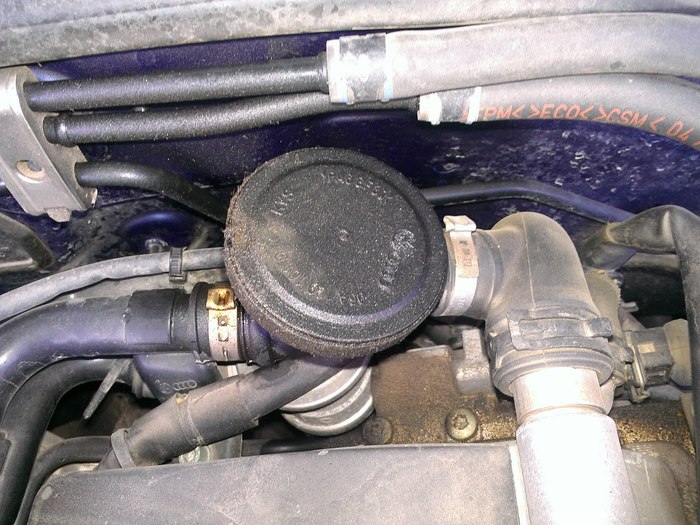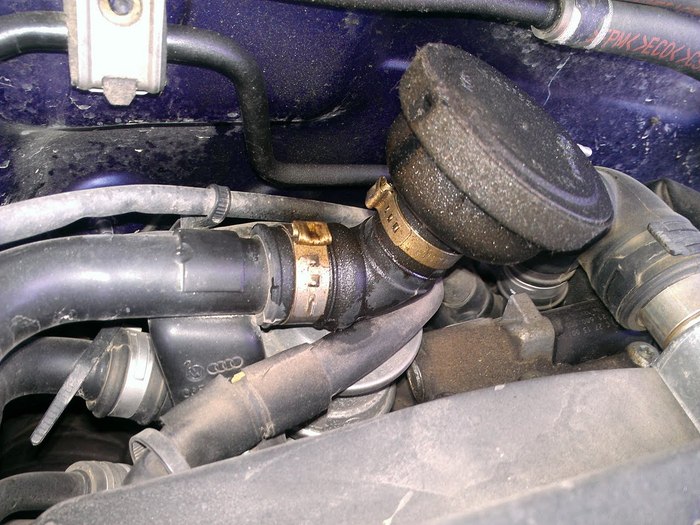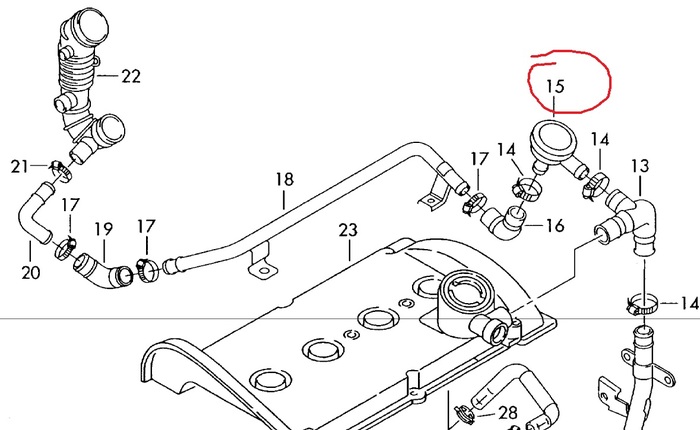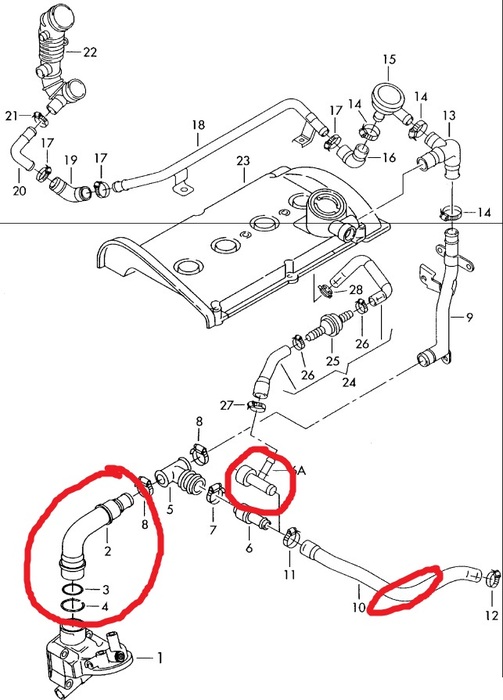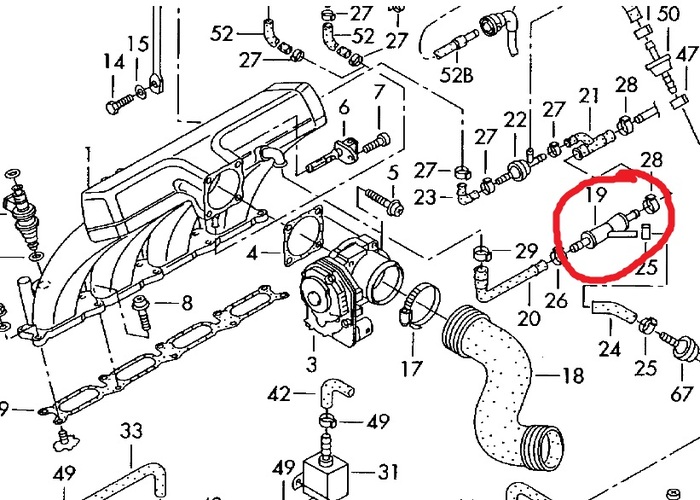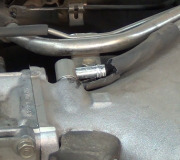The PCV breather at the top of the engine is a straight forward swap. So is the suction jet
pump by the intake manifold.
The hard part is the stuff that is under the intake manifold.
You / he need to do a visual check of all the hoses. Squeeze them to see if any are frail.
We use a smoke machine at the shop that can find broken hoses where eyes & fingers can't get too.
There are too many parts to list and I'm not going to suggest any others, since I don't want you
to buy anything unnecessary.
To put your mind at ease. The engine computer will turn on the check engine light & store a
code that will relate to fuel trim (the amount of fuel correction it has to provide when air hoses
are broken) when things get too far out of specifications.
Thomas
Monday, July 16th, 2012 AT 12:33 AM
